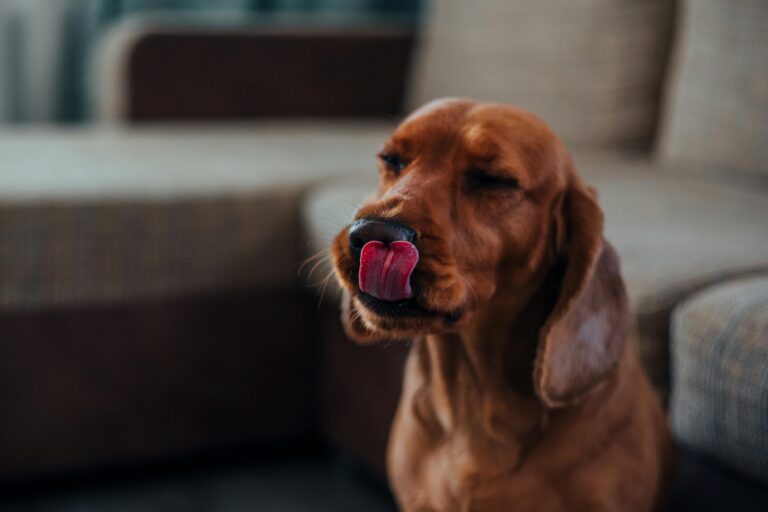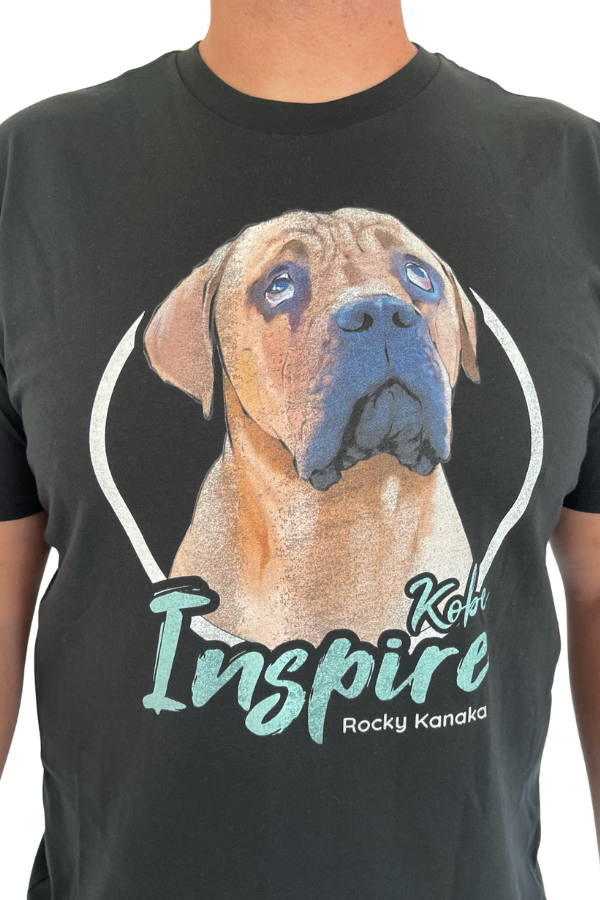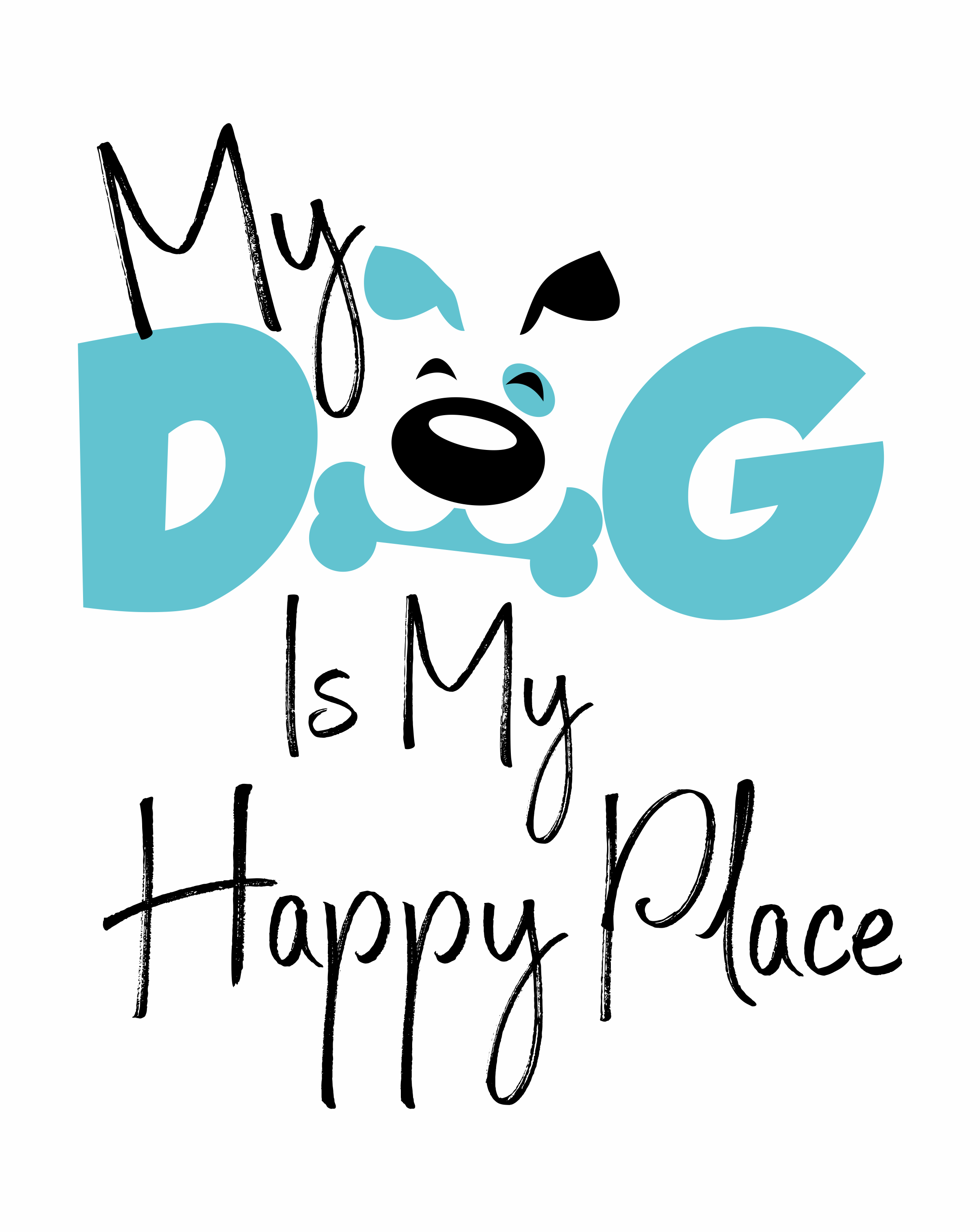Internet Sympathizes With Dog Captured On Video Having Acid Reflux Flare-Up
For many dog owners, managing a pet’s chronic health condition is an ongoing challenge. Jess, the owner of a Doodle named Goose, is one such owner, regularly navigating the effects of her dog’s Irritable Bowel Syndrome (IBS), which often leads to acid reflux flare-ups.

In a TikTok video posted on her account Jess shared footage of Goose experiencing one of these episodes, highlighting the difficulties of caring for a pet with IBS.
Watch What Acid Reflux in Dogs Looks Like
@thatkangadood People have told me I “do foo much” or I’m “overreacting” and he just has a “sensitive stomach” but this is our reality. Sleepless night and gut wrenching flare ups break my heart. Countless meds, and the best specialists and treatments money can get us here thanks to pet insurance still cant eliminate nights like tonight… You’re never too much Goose. Youre my world and I will find a way to help you 🩷💔 #ibd #ibdawareness #dogswithibd #internalmed #vetmed #internalvetmed #GI #ibddog #dogtok #dognutrition #caninehealth #dogmom #tiredogmom #dogsoftiktok ♬ I Get to Love You – Acoustic – Mysha Didi
Acid Reflux In Dogs: Here’s Everything You Need to Know
Also referred to as Gastroesophageal reflux disease (GERD), acid reflux in dogs is a condition where acidic stomach contents (gastric acid) flow back up the esophagus. It happens when the lower esophageal sphincter — a ring of muscle that keeps the bottom end of the esophagus closed — fails to function properly.
While any dog can suffer from acid reflux, it is more common in young puppies and brachycephalic dog breeds.
“GERD is when stomach fluids flow back into the esophagus, often due to a relaxed lower esophageal sphincter. It’s common in dogs, especially young and flat-faced breeds, and can cause esophagus inflammation,” explain veterinary specialists at the Listriani Vetcare Associates.
Young puppies are highly susceptible to acid reflux due to their underdeveloped esophageal sphincter. As for brachycephalic breeds like Pugs, English Bulldogs, Shih Tzus, Boxers, and Pekingese, their airway abnormalities and breathing struggles predispose them to hiatal hernia, a condition characterized by the upper part of the stomach bulging forward to the esophagus. Consequently, hiatal hernia puts these breeds at greater risk of persistent acid reflux flares.
Acid reflux irritates the esophagus lining, causing discomfort to the affected pet. Over time, inflammation can occur, leading to bleeding and painful ulcerations.
What Causes Acid Reflux in Dogs?
There are various potential causes of acid reflux in dogs. These include:
- Underlying health conditions such as obesity, pancreatitis, hiatal hernia, Irritable Bowel Syndrome, and gastritis.
- Overeating/ eating a large meal at once
- Consumption of high-fat foods
- Food allergies
Research also shows that acid reflux occurs in 12-17.8% of dogs during the administration of anesthesia. This is because anesthesia causes the esophageal sphincter muscles to relax and open, allowing the acidic intestinal fluids from the digestive tract to flow back up.
Signs & Symptoms of Acid Reflux in Dogs to Watch Out For
Acid reflux in dogs manifests in a variety of symptoms. It’s essential to be familiar with these symptoms so that you can seek veterinary care promptly before the reflux causes further damage to your dog’s esophagus lining.
So, what does acid reflux look like in dogs?
If your dog is suffering from acid reflux, they’ll exhibit signs such as:
- Regurgitating (dog burps up undigested food without actually vomiting)
- Vomiting
- Excessive lip-smacking
- Drooling
- Gagging or retching after eating
- Licking the air
- Persistent coughing
- Bad breath
- Decreased appetite
- Difficulty swallowing
- Change in bark
- Loss of weight
- Restlessness and whining due to discomfort/pain
“My senior Pittie started having symptoms 3 years ago and it first started with excessive lip licking and smacking. It would happen here and there. She would be absolutely miserable and restless. Those stopped and got worse. She started to burp a lot, fart a lot, and started regurgitating (kind of vomit but more of a spit up),” wrote user @Calm_Release_3409 in a Reddit discussion post on acid reflux in dogs (Gerd).
If you suspect your dog has acid reflux, we highly recommend seeing a veterinary professional first instead of attempting to treat the problem at home. This is because the clinical signs of acid reflux in dogs often mimic those of other conditions of the gastrointestinal tract. Your vet will be able to accurately diagnose or rule out acid reflux.
Treatment & Management of Acid Reflux in Dogs
According to Dr. Andrew Jones of Veterinary Secrets, the most common treatment approach for dogs diagnosed with acid reflux is anti-acid medication.
Depending on the severity of your dog’s acid reflux, the vet might also prescribe drugs that block digestive enzymes from producing excess gastric acid (Proton Pump Inhibitors, PPI) and tighten the lower esophageal sphincter (prokinetic medications). Other medications may also be administered to address any underlying health problem causing the acid reflux.
Beyond medication, your vet will also recommend dietary changes to help manage your dog’s acid reflux. This often includes:
- Sticking to a low-fat, highly digestible diet
- A high-quality, allergen-free diet if your dog has allergies
- Avoid feeding your dog acidic foods/fruits
- Feed your dog smaller, more frequent meals as opposed to a single large meal at a go.
How to Treat Acid Reflux in Dogs Naturally
If you prefer a more natural approach to address your dog’s acid reflux, you can try products that help promote proper digestion and overall gut health such as yogurt and probiotics. However, it’s worth keeping in mind that these natural products may not be effective on their own (without medication), particularly if your dog has severe acid reflux.
According to Dr. Katie Woodly of The Natural Pet Doctor, natural products such as grounded slippery elm, marshmallow root, ginger, pure aloe vera juice, fennel seeds, chamomile tea, and manuka honey can also help soothe the esophagus lining and reduce acid reflux in dogs. Watch her detailed video here.
All in all, it’s highly advisable to consult your vet before trying out natural remedies for acid reflux in dogs.
Acid Reflux in Dogs (GERD) FAQs
Best food for acid reflux in dogs
Experts say that the best food for dogs diagnosed with acid reflux is a low-fat, highly digestible diet.
Do probiotics help with acid reflux in dogs?
As noted earlier, probiotics may help ease the symptoms of acid reflux. However, it’s best to consult your vet before using probiotics to address your dog’s acid reflux.
Yogurt for acid reflux in dogs
The probiotic content in yogurt can help reduce the symptoms of acid reflux in dogs. However, yogurt alone may not be effective in treating the acid reflux.
Acid reflux in dogs home remedy
Experts say natural products such as ginger, chamomile tea, fennel seeds, pure aloe vera juice, and manuka honey can help reduce acid reflux in dogs.
Acid reflux in brachycephalic dogs
As explained earlier, brachycephalic dogs are highly susceptible to acid reflux due to their airway abnormalities.








